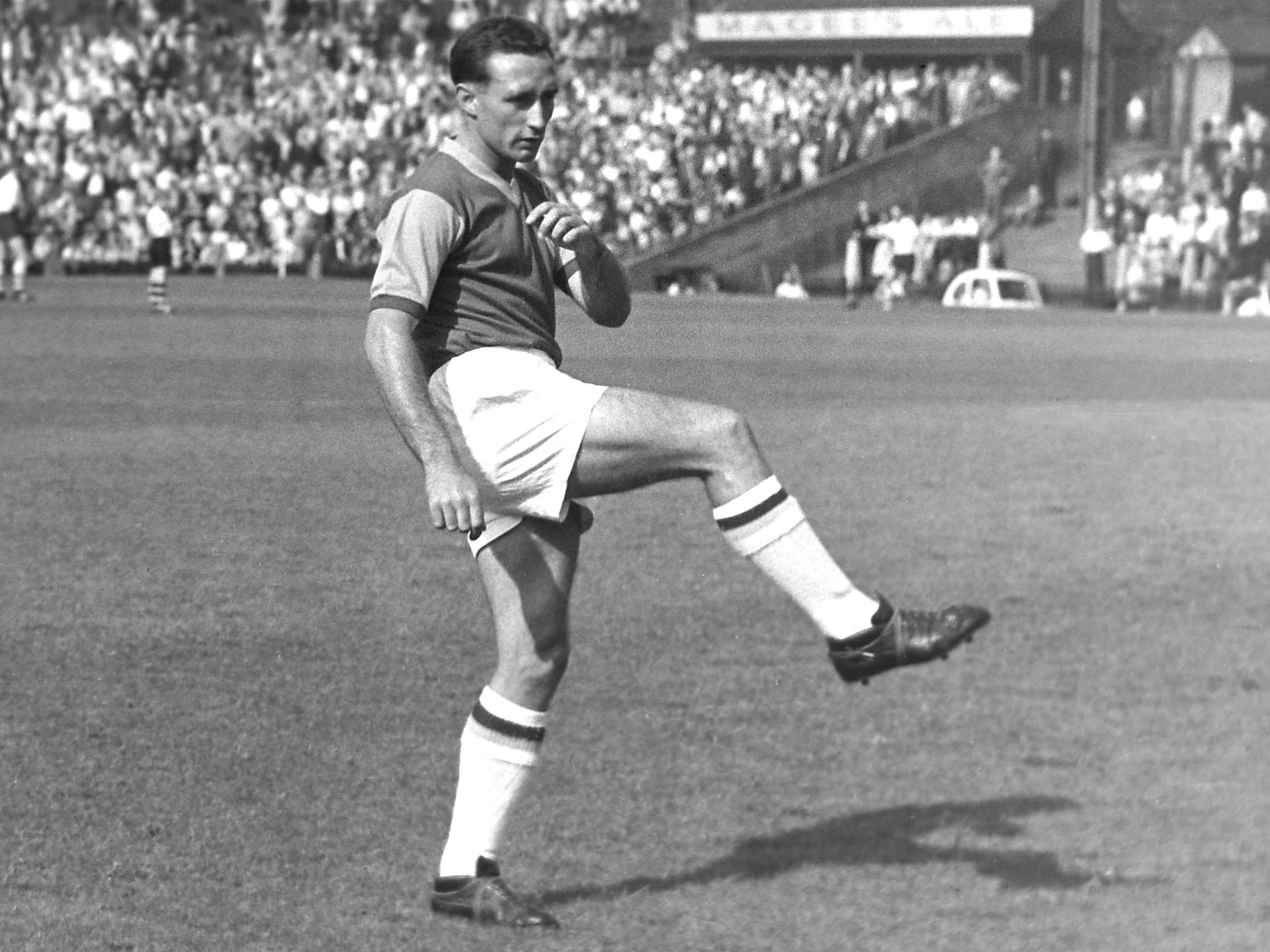Andy Malcolm: Midfield enforcer whose tenacity gave him a key role in Ted Fenton's illustrious West Ham side of the 1950s

There wasn't much Johnny Haynes, the Fulham and England midfield general of the 1950s and '60s, didn't know about the fellow footballers who set out to prevent him from displaying his crowd-pleasing artistry – and he described Andy Malcolm as a butcher.
The unobtrusive but unremittingly tough Malcolm was indeed a formidable enforcer who tackled ruthlessly and was tenacious when marking an opposing danger man, especially during his prime with West Ham United. Yet he was deceptively skilful, a precise and perceptive passer endowed with more subtle shades of ability than most ball-winning wing-halves of his era.
Quiet and unassuming, Malcolm was known for his dry humour. Before one match with Chelsea in which he was detailed to subdue the menace of the brilliant young goalscorer Jimmy Greaves, he muttered darkly to his team-mate John Bond, "If the little blighter gets past me, just chip him back in my direction."
The son of an east London train driver, Malcolm was born above a grocer's shop around the corner from Upton Park, and he signed for West Ham in 1948, initially working in the club office before turning professional in 1950, then becoming the club's first England youth international, playing nearly 100 reserve games before making his senior debut in the Second Division in December 1953.
Soon he commanded a regular place alongside pedigree performers such as Bond, Noel Cantwell, Malcolm Allison and Frank O'Farrell. In 1957-58 he was a key component as Ted Fenton's men were divisional champions, being voted Hammer of the Year by the fans, then he was ever-present in 1958-59 as they finished sixth.
Malcolm fell from grace in 1961, when Fenton was replaced by Ron Greenwood, who was not enamoured of his abrasive style and dropped him in favour of a young Lancastrian named Geoff Hurst, who was destined in time for conversion from wing-half to centre-forward before taking a decisive role in England's World Cup triumph of 1966.
Malcolm moved to Chelsea in November 1961, West Ham receiving centre-forward Ron Tindall and £10,000 in exchange. However, he was neither the first nor the last footballer not to get on with manager Tommy Docherty, and after the Pensioners were relegated in 1962 he was sold to third-tier Queen's Park Rangers for £10,000. Under the enlightened regime of Alec Stock he enjoyed life at Loftus Road, but suffered a serious eye injury which initially threatened his career, and left in 1965.
He emigrated to South Africa, joining Apollen in Port Elizabeth, then returned to the UK with Southern League Brentwood in 1967. Later he worked for an ice-cream company before becoming a publican in Essex, playing Sunday league football with some of his customers.
IVAN PONTING
Andrew Malcolm, footballer: born London 4 May 1933; twice divorced (two sons); died Port Elizabeth, South Africa 26 December 2013.
Join our commenting forum
Join thought-provoking conversations, follow other Independent readers and see their replies
0Comments